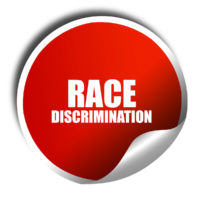EEOC Files Discrimination Lawsuit Alleging Employees Were Racially Harassed

Having represented victims of workplace harassment for almost twenty years, our Citrus County, Florida employment discrimination lawyers have learned that employers still do not take action to prevent and correct racial harassment in the workplace. Under Title VII of the Civil Rights Act of 1964 (Title VII), employees are protected from discrimination on the basis of race. Racial harassment is a form of race discrimination prohibited by Title VII. Title VII also protects employees from retaliation when they complain about perceived racial harassing behavior in the workplace.
Employers Are Liable For Racial Harassment
To sustain a claim of racial harassment, the harassment must be sufficiently severe or pervasive to alter the conditions of the victim’s employment and create an abusive working environment. Prohibited forms of racial harassment include racial epithets, racial slurs, racial comments, racial graffiti, racial code words, and any other verbal or physical conduct that targets an employee for abuse because of his or her race. When an employer knows or should know of racial harassing behavior in the workplace, Title VII mandates that the employer take prompt and effective corrective action to prevent the harassment from continuing. If the employer does not take any remedial action, or where the remedial action does not end the harassment, the employer is liable for the hostile work environment racial harassment.
In a press release issued on May 21, 2019, the U.S. Equal Employment Opportunity Commission (EEOC) announced that it has filed a racial harassment and retaliation lawsuit against Cardinal Health 200, LLC (Cardinal Health) and AppleOne Employment Services (AppleOne) pursuant to Title VII. On May 21, 2019, the EEOC filed the lawsuit, U.S. Equal Employment Opportunity Commission v. Cardinal Health 200, LLC and AppleOne Employer Services, Case No. 5:19-cv-941, in the U.S. District Court for the Central District of California after initially attempting to reach a pre-litigation settlement through its statutorily mandated conciliation process. The EEOC has brought the racial harassment and retaliation lawsuit on behalf of Sequia Sims (Sims), Lisa Henry (Henry), and other African-American workers employed by Cardinal Health and AppleOne. In this article, our Citrus County, Florida race discrimination lawyers explain the EEOC’s allegations against Cardinal Health and AppleOne.
EEOC’S Allegations Of Racial Harassment
Cardinal Health is a health services and products company. AppleOne is a staffing agency. Cardinal Health has been under a contract with AppleOne for the assignment of temporary or temporary-to-permanent employees. The EEOC claims that African-American employees who worked at Cardinal Health’s warehouse in Ontario, California were subjected to severe and pervasive racial harassment. Some of the harassed employees were assigned by AppleOne to work at Cardinal Health’s warehouse. Other harassed employees were employed directly by Cardinal Health. Cardinal Health exercised control over all of the harassed employees, including directly supervising their work, responding to complaints, and subjecting them to discipline or termination.
According to the EEOC, the racial harassing behavior towards African-American employees included racial epithets. For example, the EEOC that co-workers, supervisors, and managers used racial epithets on a daily basis, including racial epithets directed at African-American employees. The EEOC further alleges that the racial harassment included racially derogatory graffiti. Since at least December 2016, according to the EEOC, the restroom facilities at Cardinal Health’s warehouse has been defaced with racially derogatory graffiti, including racial epithets and physical threats.
The EEOC claims that Cardinal Health and AppleOne knew about the racially harassing behavior because Sims, Henry, and other employees complained about the harassment to management of Cardinal Health and/or AppleOne. The EEOC alleges that both Cardinal Health and AppleOne failed to take prompt and effective remedial action to end the harassment. For example, the EEEOC maintains that neither Cardinal Health nor AppleOne adequately investigated complaints of racial harassment or adequately disciplined the harassers. The EEOC further alleges that Cardinal Health and/or AppleOne retaliated against employees who complained about racial harassment by failing to hire them to full-time positions and terminating their employment.
Employers Must Stop Workplace Harassment
The EEOC is the administrative agency of the United States responsible for interpreting and enforcing federal laws prohibiting employment discrimination, including racial harassment. The EEOC is also authorized by federal law to bring lawsuits on behalf of victims of employment discrimination, including racial harassment. In a press release issued by the EEOC regarding the case, the Director of the EEOC’s Los Angeles District Office, Anna Park, stated that the “EEOC continues to see too many complaints of harassment in the workplace.” “Under federal law,” Ms. Park added, “employers must promptly take action when harassment is reported.”
Free Consultation With Inverness Harassment Lawyers
Based in Ocala, Florida and representing employees throughout Central Florida, we have represented employment discrimination and harassment victims in hundreds of cases before the EEOC. If you have been harassed because of your race at work or have questions about an employer’s obligation to take action to prevent and correct racial harassment in the workplace, please contact our office for a free consultation with our Citrus County, Florida racial harassment attorneys. Our employment and labor law attorneys take employment discrimination and harassment cases on a contingency fee basis. This means that there are no attorney’s fees incurred unless there is a recovery and our attorney’s fees come solely from the monetary award that you recover.


 Close Menu
Close Menu